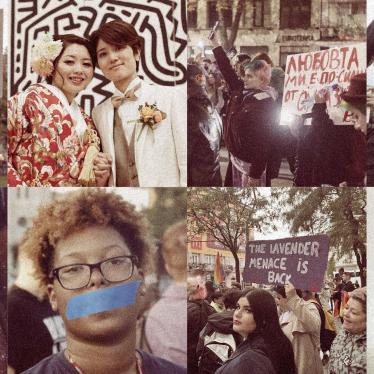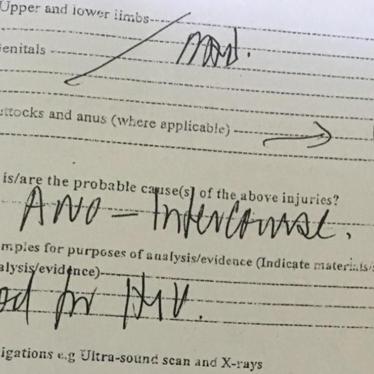Ten years ago this month, when the Netherlands became the first country in the world to legalize same-sex marriage, most Dutch people were in favor of the law, but a vocal minority insisted that gay marriage would mean the end of Western civilization. It took a political slugfest to get the law passed.
I was a member of parliament at the time and the initial sponsor of the same-sex legislation. The Netherlands had introduced gay civil unions in 1998; I regarded them as a step forward but still insufficient. Why should heterosexuals be able to fence off a part of civil law - marriage - and defend it as exclusively theirs? This "separate but equal" status reminded me of apartheid in South Africa and Jim Crow in the United States. When two people decide to share their responsibilities and commit themselves to each other by entering civil marriage, their sexual orientation shouldn't matter to the government.
The Christian Democrat party was fiercely opposed though. Many of its members and those in other right-wing Christian political parties announced that if the bill passed, it would devalue the institution of marriage, open a can of legal worms and cause the rest of the world to shun the Netherlands. Sen. Hannie van Leeuwen, a leader of the Christian Democrat party, stated it would be the best for everybody concerned to stick to civil unions.
A decade later, of the nearly 75,000 civil marriages that take place in the Netherlands each year, about 1,400 involve same-sex couples. Heterosexual couples did not turn away from the institution of marriage, nor did the world isolate my country. Civilization as we know it did not end. And, as far as I can tell, God did not punish the Netherlands.
On the contrary, the bill paved the way for nine more countries (Belgium, Spain, Canada, South Africa, Norway, Sweden, Argentina, Portugal and Iceland), one city (Mexico City), the District of Columbia in the U.S., and several U.S. states (Massachusetts, Connecticut, Vermont, Iowa, New Hampshire and, briefly, California) to allow gays to marry. In Slovenia, Nepal and Australia, same-sex marriage is now on the political agenda.
I believe this trend is unstoppable, as is the broader cause of gay rights. But that doesn't mean justice will proceed without furious debate and even bloodshed. My colleagues working for gay rights in many parts of the world have been beaten, arrested, sodomized and even assassinated for their work. In these countries marriage equality is not even on the wish list. Gay rights in those places means ending violence against homosexuals and ending criminal sanctions based on sexual orientation. David Kato, a gay human rights defender in Uganda, was brutally slain a few months after a Ugandan newspaper printed his picture and others with an anti-gay article and the label "Hang them."
I've never encountered such dangers myself, but I've faced my share of unpleasantness. In 2005, I was part of a parliamentary delegation to Aruba, in the Dutch Antilles. The justice minister there had refused to recognize a same-sex marriage performed in the Netherlands, although Aruba is part of the Kingdom of the Netherlands. He told me he considered such unions unnatural and deviant. During a parliamentary session, the Dutch delegation could hear through open windows demonstrators screaming that I should be forced to leave the island because I was homosexual and therefore a sinner.
For some minutes, we tried to pretend nothing was going on. But finally, Van Leeuwen, who had lobbied so hard against the same-sex marriage bill in my own parliament, stood.
"At the time I opposed same-sex marriage, I was led by fear," she said. "Having seen so many happy gay and lesbian couples getting married, I realize I was wrong. I don't understand any more what made me treat gays and lesbians differently from other citizens."
This moment will come in the United States. In 1967, the prohibition of interracial marriages in many states of the U.S. was declared unconstitutional. Now the U.S. should take the next step.
It takes political courage at the very top to push though the legal changes for same-sex marriage. Wouldn't it be wonderful if, during President Obama's administration, this shameful era of discrimination were brought to an end, and gay marriage became as unremarkable as it deserves to be.
Boris O. Dittrich is advocacy director of the Lesbian, Gay, Bisexual and Transgender Rights Program at Human Rights Watch. He was the first openly gay member of parliament in the Netherlands (1994-2006).
Copyright © 2011, Los Angeles Times






